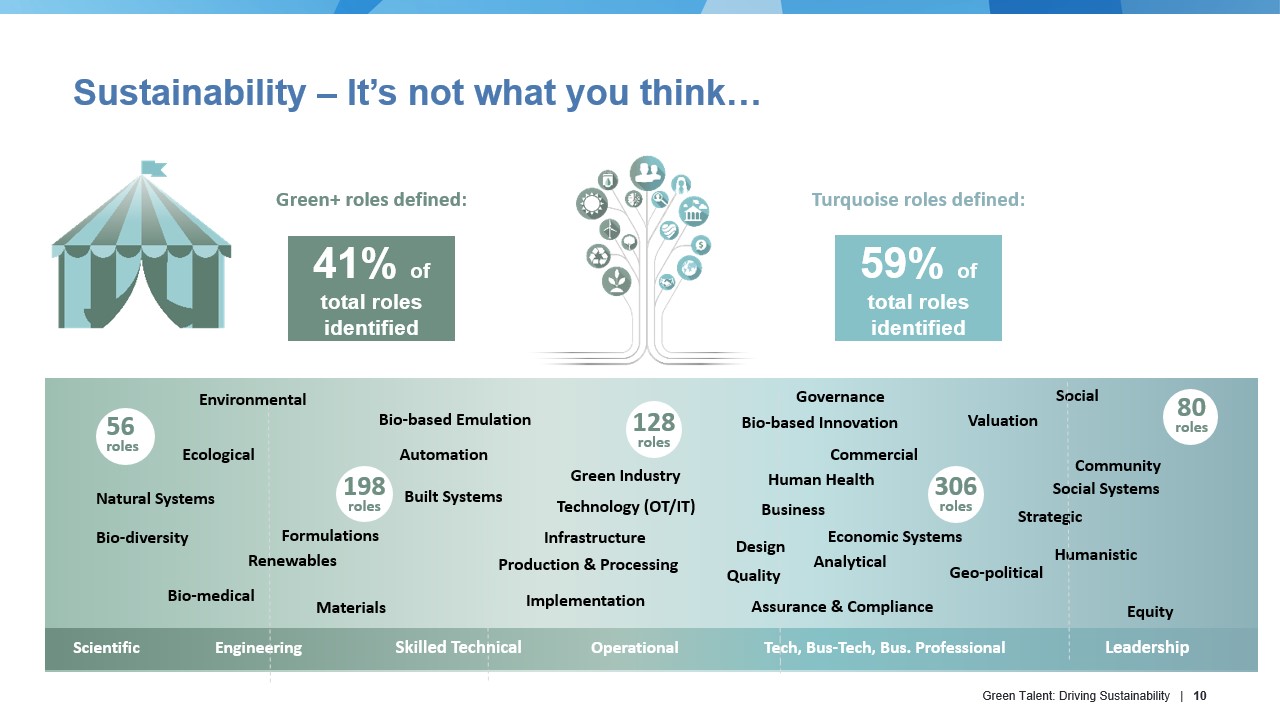Globally, 70% of employers are currently or actively planning to recruit for green jobs and skills and Manufacturing & Production is the #1 in-demand job function. According to ManpowerGroup Vietnam, in the first 8 months of this year, manufacturing tops the list of in-demand industry for green jobs (30%), followed by energy (20%), healthcare (18%) and technology (16%).
The pursuit of green jobs is a driver of the green transformation in manufacturing, helping businesses operate efficiently, avoiding waste and reducing disruptions in production and transportation processes, which can be 3.5x more profitable than other businesses.
Accessing talent is key to Walk the Talk on ESG commitments
The Vietnamese government has been implementing many solutions to promote green transformation, mitigating climate change, and raising awareness of sustainability issues. These efforts are driving industry transformation and opening up more opportunities in the labor market.
Green transformation in manufacturing is focused on transitioning to a circular economy, technology application, development of renewable energy sources, and cultivating a green workforce. Employers say the green business transformation will be the #1 global job creator in the next 5 years.
Viet Nam's labor market has a significant potential for green transformation. With a population surpassed 100 million people in 2023, Vietnam ranks among the top three countries with the largest populations in Southeast Asia, following Indonesia and the Philippines, and is 15th globally. Moreover, we are in a golden population period when 67.4% of the population is of working age and Generation Z will make up 1/3 of the workforce by 2025 – who is well aware of sustainable development (ESG), especially diversity, equality, and inclusion.

Sustainable development in general and green transformation in particular are currently in their early stages in Vietnam. The country faces challenges related to the necessary qualifications of workers, including technical skills and experience. ManpowerGroup's report shows that the proportion of highly skilled workers in Vietnam is 11%, lower than other countries in the region such as Thailand (14.5%), Malaysia (28.24%), Philippines (18.5%). Personnel with advanced technical qualifications or senior roles (project managers, infrastructure engineers) are usually experts from other countries who have experience in similar projects. Only a small number of domestic workers meet the requirements thanks to their transferrable skills from other industries.
Besides, soft skills and foreign language proficiency are considered crucial for promoting sustainable development by raising awareness and improving productivity. From our experience, workers’ failure to meet the requirement for soft skills and English proficiency are believed to be one of the causes of recruitment difficulties in manufacturing. Particularly, according to our report last year, 30% of the surveyed companies admitted that fewer than 10% of their employees have the necessary English skills to work.
Meeting the Demand for Green Skills
Giga factories are considered a hot spot for in-demand skilled workforce. In Europe, ManpowerGroup is adopting "Green Booster" – a tool that measures the maturity of employees' mindsets on issues related to ecosystem shifts. This allows businesses to customize their approach to raise awareness and encourage employees to participate in the company's green transition.
In the US, we applied the “just transformation” approach, means, actually engaging impacted people, especially those at most direct risk, to help create new maps to different work and living situations. It includes reskilling and offers of other employment or relocation, regenerative communities or other support and do not leave people or existing workforces behind. By engaging their participation and counting on their mutual interest, talents and efforts makes these transformation communities potentially one of the most self-actualizing, innovative, and renewable resources of all.

Southeast Asia is still in the early stages of the green transformation. Major projects are starting to be implemented, resulting in a recruitment demand focused on specialist green skills. There is still a need for talent mobility to "import" expertise and experiences from other countries.
In Vietnam, the clock is ticking. While the government is committed to tackle climate change and promote ESG-related practices, more needs to be done in terms of driving awareness on ESG practices, providing clarity and structure on ESG guidelines as well as training support so that companies and workers can leverage the green momentum to secure long term growth.
Contact Manpower Vietnam today to explore how our consultancy services can help you navigate your organization's green journey and fulfill your hiring needs for green talent.

